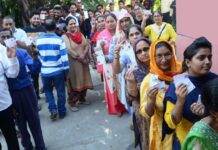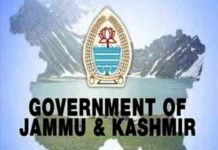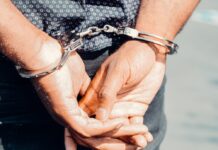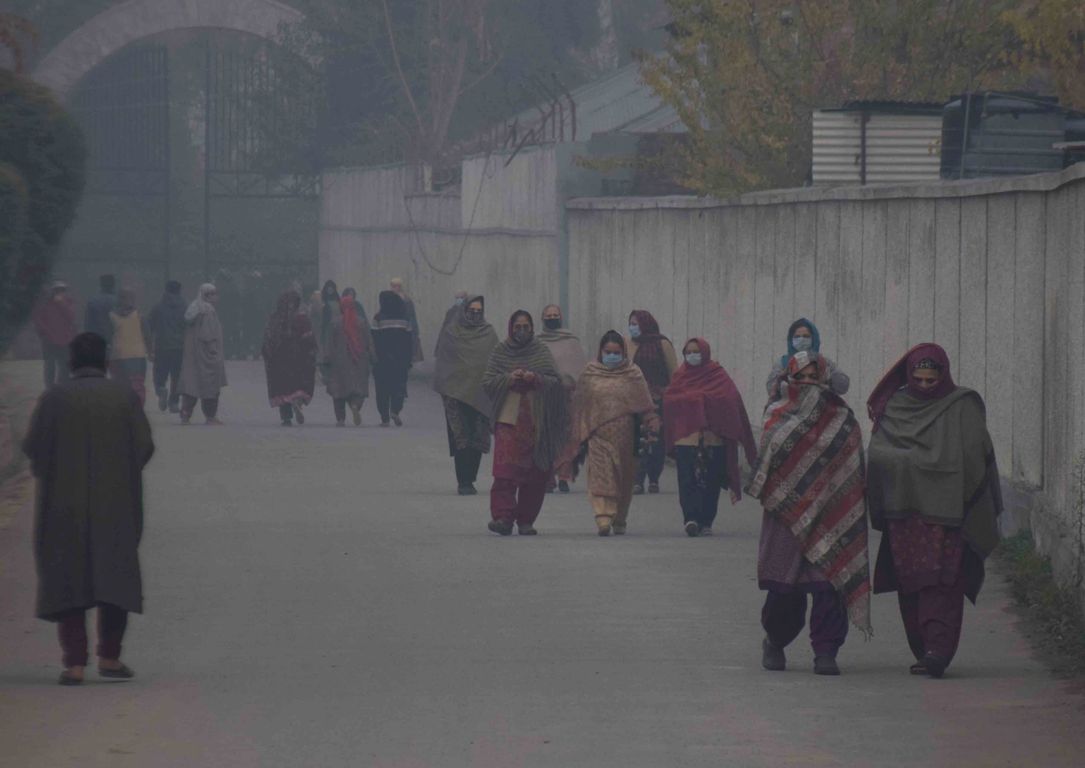by Muzaffar Raina
SRINAGAR: Kashmir’s unforgiving divide seemed momentarily breached after a former militant commander died in police custody on Tuesday, with the army’s Facebook page featuring a tribute to the 70-year-old from a brigadier.

Brigadier P S Gothra, formerly Brigadier General Staff with the Northern Command, wrote a deeply personal post describing how Ghulam Hassan Malik alias Noor Khan had in 1993 rescued his father, also an army officer, from the clutches of a fellow militant group.
Major G S Gothra was chief engineer for the Uri hydroelectric project when he was taken hostage by insurgents.
Khan, a former Jammu and Kashmir Liberation Front commander who gave up militancy after his arrest in the late 1990s, was booked in January on arms smuggling charges under the Public Safety Act, which allows detention without trial for six months.
He died at Jammu’s Government Medical College Hospital, where he had been shifted from Kot Bhilwal jail after his health worsened. His family claims the police framed him and has demanded an inquiry into his death.
As hundreds in the Valley mourned Khan’s death, Gothra posted his Facebook obituary.
“With Noor Khan it was a unique relation…. Deep pain in my heart resembled as if I have lost somebody very close. Many may wonder why a fourth-generation officer of the Indian Army is feeling bad on reading the headlines, ‘Pro-freedom activist lodged in Jammu Jail passes away’,” he wrote.
He said that after his father was kidnapped, some NHPC staff and local people had approached Khan, who used to be a state power department employee before joining militancy, to help secure the major’s release.
Khan was reminded how some NHPC employees had earlier helped him after he had escaped a security cordon in an injured condition. They told him it was time to reciprocate.
Khan used his network to find out that the major was being held in Dangerpora village in Sheri Valley, Baramulla. Khan himself was a resident of Baramulla’s Narwaw village.
“A local truck driver of the project volunteered to go with Noor Khan to that village. Noor Khan at his peril argued with those terrorists and by midnight my father was brought back safely,” Gothra’s post says.
Gothra told The Telegraph that Khan was a man of courage and “dignity”.
“My father told me that he had called Khan (who was still a militant) to his office later (after his release) and offered him money but he refused to take a single penny.”
In 2013, Brigadier Gothra was posted in the same area and visited Khan’s home “to thank him for the good deed”.
Khan’s son Irshad said he remembered the officer’s visit. “After that my father would go and meet him occasionally,” he said.
The brigadier said Khan had never discussed militancy with him, choosing to talk about personal matters instead.
Irshad said his father was not keeping well but the police would arrest him frequently. “Three days ago, we received a call saying my father was ill. We went to Jammu and were shocked to see he could barely talk. He was already in the hospital for three days,” he said.
“They were only fulfilling a formality by calling us to the hospital. Otherwise, he was already 90 per cent dead.”
Lekh Ram, an NHPC employee who was Major Gothra’s personal assistant during the project, said he too had been abducted with his boss and two local employees, including a driver, while returning home from work.
“We saw a bullock cart blocking the road near Gantimulla village. As we stopped, two men (militants), one of whom wielded a pistol, asked Sahab to accompany them and told the three of us to get off. I insisted that I would accompany them,” Ram told this newspaper.
“I told them that Sahab was a diabetic patient. We went to a chemist’s to buy medicines for him. Then they decided to drop me somewhere, but on the way we found the local SHO (station house officer) and policemen. We stopped and they (the militants) interacted with the SHO for a while but I could not make out what they were discussing.”
The police were apparently investigating the abduction. It was not unusual for the police to interact with militants those days, for the force was seen to be largely sympathetic to the insurgents’ cause.
Ram said he saw Khan arrive in a vehicle along with some local people and, after some enquiries, head straight to the village where the major was being held.
“After five hours or so, Sahab was back to his residence,” he said.
No one could recall which group had abducted the major. Major Gothra died of illness in 1995.
(This report appeared in Telegraph Kolkotta under the headline An officer’s debt to a militant.)















